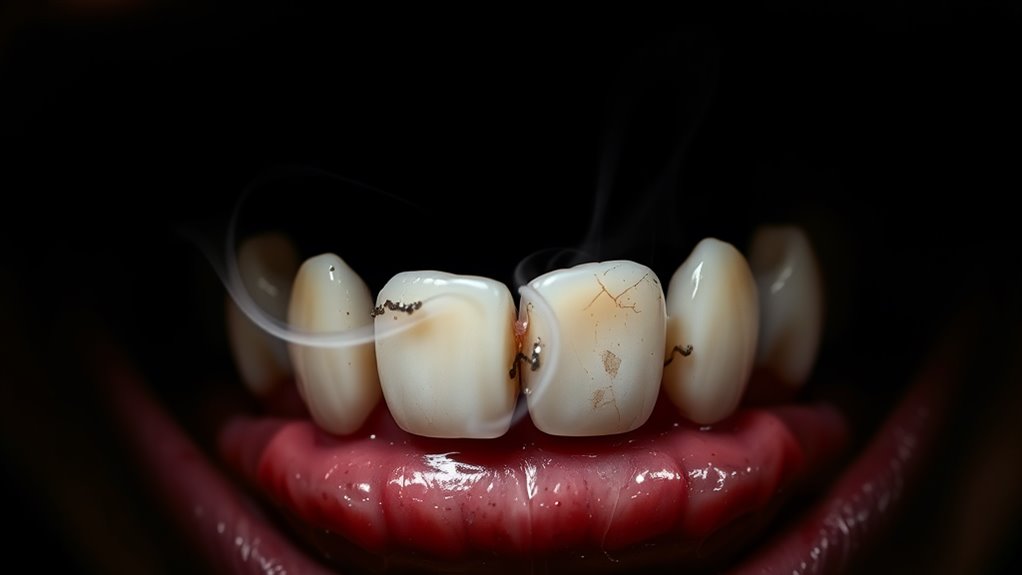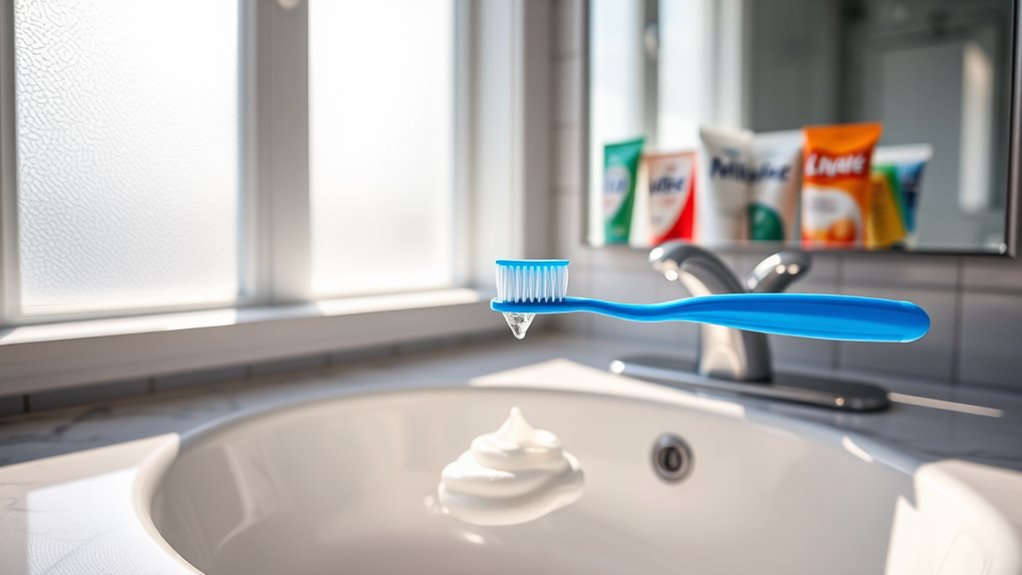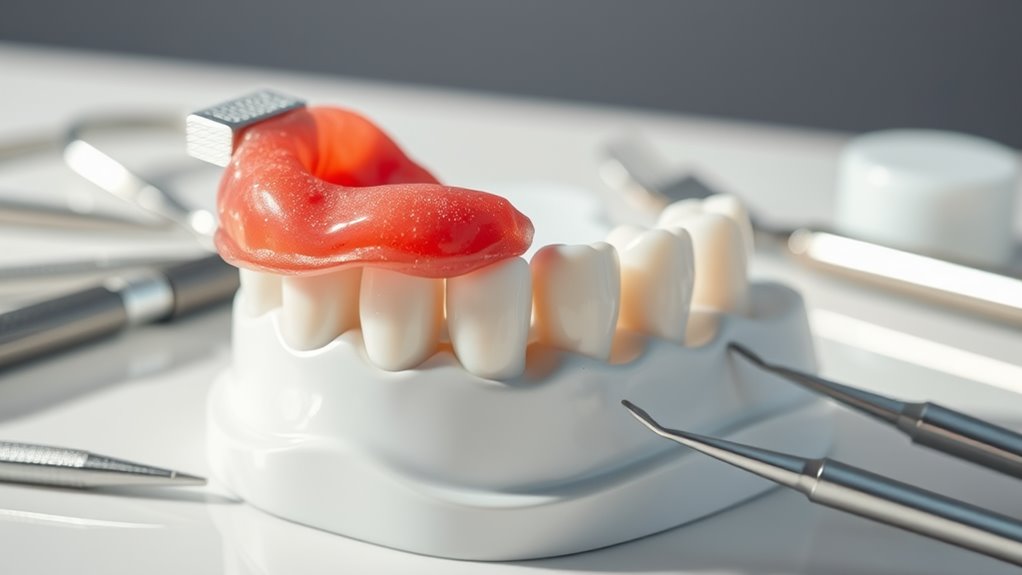Mouth Breathing Is Ruining Your Teeth – Fix It Now!
Mouth breathing might seem harmless, but it can seriously damage your dental health. You’re likely unaware of how this habit dries out your mouth, leading to increased plaque and tooth decay. It’s not just about bad breath; your teeth alignment could even be affected. Curious about the causes and how to fix it? Let’s explore the impacts of mouth breathing and discover effective solutions to protect your smile.
The Causes of Mouth Breathing
While many people breathe through their noses without a second thought, mouth breathing can stem from various underlying issues. You mightn’t realize it, but conditions like allergies, nasal obstructions, or even sleep apnea can push you to breathe through your mouth.
This habit isn’t just a minor inconvenience; it can lead to significant mouth breathing effects that impact your overall health and comfort. When you breathe through your mouth, you’re not filtering the air like you do through your nose. This can result in dry mouth, bad breath, and even increased risk of infections. Moreover, poor oral health can exacerbate systemic diseases, leading to more serious health complications.
Plus, it can disrupt your sleep quality, leaving you feeling tired and unfocused during the day. Understanding why you might be mouth breathing is the first step toward finding solutions. You deserve to feel your best and enjoy the benefits of healthy, effective breathing!
How Mouth Breathing Affects Dental Health
Mouth breathing not only affects your overall health but also has serious implications for your dental health. When you breathe through your mouth, you reduce saliva production, which is essential for washing away food particles and neutralizing acids. This can lead to a dry mouth, creating an environment where harmful bacteria thrive.
As a result, you might notice increased plaque buildup, tooth decay, and bad breath.
Additionally, mouth breathing changes the way your teeth align and can contribute to malocclusion over time. You might find that your bite feels off or that your teeth are shifting.
It’s crucial to recognize these signs early and address mouth breathing to protect your smile and overall well-being. Joining a community focused on improving dental health can provide support, tips, and encouragement on your journey to better oral hygiene. Furthermore, maintaining good oral hygiene can help reduce the risk of complications associated with mouth breathing, such as gum disease and respiratory infections.
The Connection Between Mouth Breathing and Gum Disease
When you breathe through your mouth, you increase your risk of developing gum disease significantly. This happens because mouth breathing dries out your gums, making them more susceptible to bacteria and inflammation. When saliva production decreases, your mouth loses its natural defense against harmful pathogens.
Here’s a quick look at how mouth breathing relates to gum health:
| Mouth Breathing Effects | Gum Health Impact |
|---|---|
| Dry mouth | Increased bacteria growth |
| Decreased saliva | Higher risk of plaque buildup |
| Altered pH balance | Greater chance of gum inflammation |
| Reduced nutrient delivery | Slower healing process |
| Compromised immune response | Elevated risk of gum disease |
Addressing mouth breathing isn’t just about comfort; it’s vital for your oral health. By becoming aware of this connection, you can take steps to protect your gums and enjoy a healthier smile. Additionally, poor oral hygiene can lead to systemic conditions that affect your overall well-being.
Identifying Symptoms of Mouth Breathing
Recognizing the symptoms of mouth breathing is important for maintaining your oral health. You might notice dry mouth, especially after sleeping or resting, which can lead to bad breath and increased cavities. If you often feel tired or have trouble concentrating, it could be linked to the way you breathe at night. You may also experience sore throats or frequent snoring, which are common indicators.
Pay attention to how your teeth look, too. If you see signs of gum recession or increased plaque build-up, mouth breathing might be a factor.
Additionally, if you’ve noticed changes in your facial structure, such as a longer face or misaligned teeth, these can stem from chronic mouth breathing. Recognizing these signs is crucial, as they connect directly to your overall dental health. Ignoring these symptoms can lead to serious infections and other complications that affect your well-being.
You’re not alone in this; many face similar challenges, and taking action can lead to healthier outcomes.
Strategies to Encourage Nose Breathing
To encourage nose breathing, start by being mindful of your habits throughout the day. Notice when you tend to breathe through your mouth and gently remind yourself to switch to your nose.
Practicing deep, slow breaths can help; try inhaling through your nose for a count of four and exhaling for a count of six. Incorporating nasal breathing exercises into your routine can also make a difference.
During physical activities, focus on maintaining nasal breathing to train your body. You might even find it helpful to tape your mouth closed lightly at night, as long as you’re comfortable.
Surround yourself with supportive friends or family who can join you in this journey. Sharing your progress can boost motivation and create a sense of community. Additionally, maintaining good oral hygiene can support oral health and help prevent harmful bacteria from entering your digestive system.
Seeking Professional Help for Mouth Breathing Issues
If you’ve tried various strategies to encourage nose breathing without success, seeking professional help can be a crucial next step. You’re not alone in this journey, and there are experts who understand your struggles.
Dentists, orthodontists, and even ENT specialists can provide valuable insights tailored to your needs. These professionals can identify underlying issues, like allergies or structural problems, that might be contributing to your mouth breathing.
With their guidance, you can explore effective treatment options, such as myofunctional therapy or dental appliances, designed to promote proper breathing habits.
Joining a support group can also connect you with others facing similar challenges, reminding you that you’re part of a community seeking better health.
Taking this step not only improves your breathing but can also enhance your overall wellbeing. Don’t hesitate—reach out and take control of your health today!




